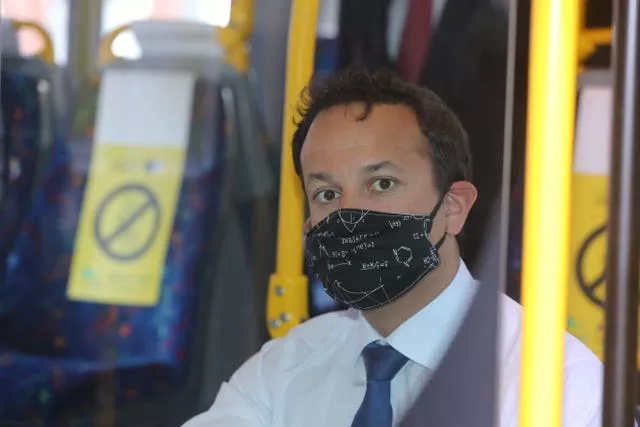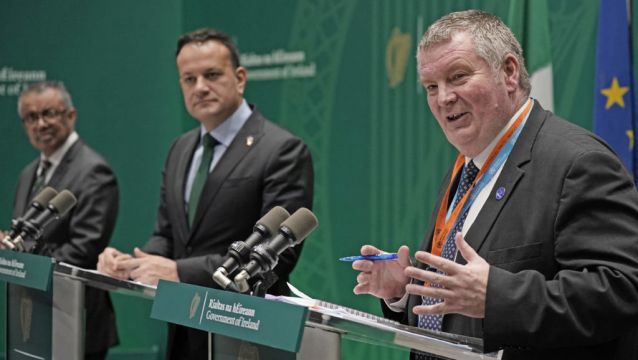Taoiseach Leo Varadkar has said the State's Covid inquiry will “certainly” be held next year after being delayed this year due to a series of “unpredictable events”.
A review of how Ireland handled the Covid-19 pandemic is expected to analyse the Government’s response, how hospitals and nursing homes coped and the effect it had on society and the economy.
The Government had planned to establish the inquiry this year, but Mr Varadkar said in January that time was needed to get the terms of reference right so it does not stray into “all sorts of things” as had happened in the UK.
The UK Covid-19 Inquiry has publicly questioned UK prime minister Rishi Sunak, former prime minister Boris Johnson, former health secretary Matt Hancock and former adviser to Mr Johnson, Dominic Cummings.
“We have the draft terms of reference for the inquiry ready now,” Mr Varadkar said on Monday.

“We have committed to consulting with the opposition before bringing the terms of reference to Cabinet and just with so many unpredicted events happening in the last couple of weeks, we haven’t been able to schedule that at a time that works for everyone.
“So it’ll be the New Year before that goes to Cabinet now, but the inquiry will certainly be up and running in 2024 and you can be sure of that.
“It’s something I’m very keen that we should do because we need to work out what what we did right and what we did wrong and what we can do better should we face a pandemic in the future, always understanding that the next pandemic when it comes is likely to be very different one to the one that happened.”
Mr Varadkar was speaking after meeting the director-general of the World Health Organisation (WHO), Dr Tedros Ghebreyesus, in Dublin on Monday.
Mr Tedros was accompanied by Dr Mike Ryan, executive director of WHO’s Health Emergencies Programme, and the two senior health experts met President Michael D Higgins earlier in the day.
Asked at a press conference at Government Buildings about how Ireland should approach its Covid-19 inquiry, Dr Ryan said: “I don’t presume to tell the Irish government how it should run its business, particularly when it comes to reviewing performance in an emergency response.”
Dr Ryan said there was “coherent leadership” from Ireland during the pandemic and that science was “driving the car”, which he said was not the case in all other countries.

“I will say two things, one is looking from the outside in. The Irish health service, leadership and unity in Ireland expressed the way in which the population of Ireland worked with the Government to get through the worst of this pandemic was quite impressive.
“Science was driving the car, which was good, which wasn’t the case everywhere else.
“But no emergency response in my experience, and as a clinician as well, we never do anything in medicine or health without having some sense of ‘we could have done it better’.
“One of the things we’re trained in medicine is always to do that clinical review, you go back and look at any event, whether it went well or went badly because there’s always something to learn.
“So going back to review is a fantastic idea. The question is, I think, rather than thinking about the format, and this is a general issue not unique to Ireland, I find and we find, that reviews where the objective is to improve and get better, tend to be very functional and come up with really concrete things that matter and make a difference to people and communities.
“Reviews that are aimed at finding people to blame tend to just do that: they find people to blame and very often do not result in any sustainable, discernible improvement in performance the next time.
“So really, it doesn’t come down to format, it comes down to objective and purpose. So I would ask maybe the government and the people of Ireland to ask ‘what is the purpose of a review’ and if you get that purpose right then the process sorts itself out.”







